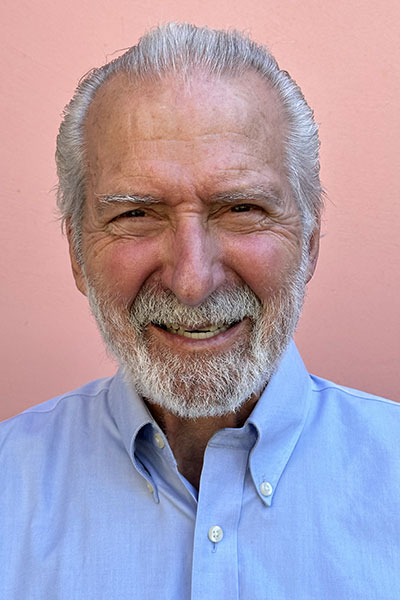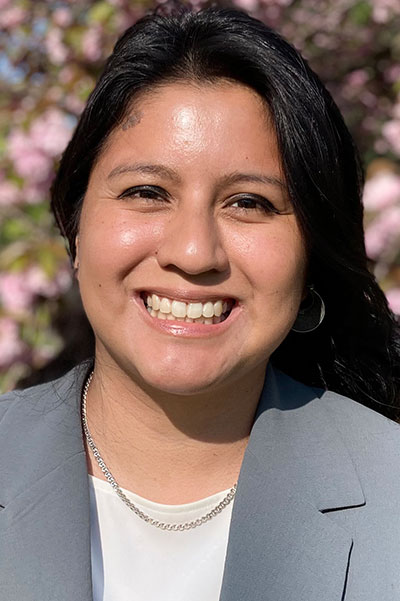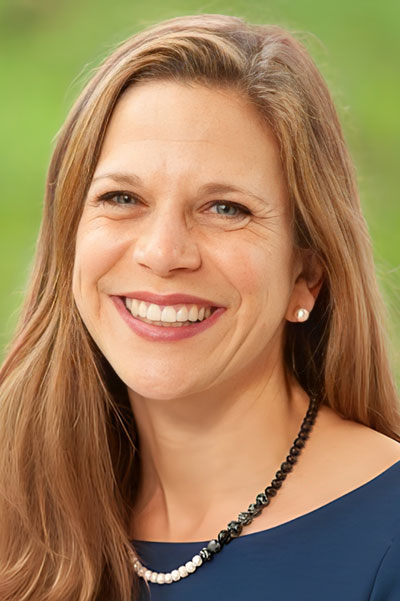In an election year in the United States, immigration is a topic that inevitably comes to the forefront of national discourse. For respiratory health professionals, caring for patients who are immigrants and possibly undocumented is not a matter of politics. However, there are unique considerations and best practices that providers should apply when treating this patient population.

The final Keynote Series session of the ATS 2024 International Conference will feature a multifaceted panel discussion on immigrant health, moderated by Fernando Holguin, MD, MPH, and led by specialists Marc B. Schenker, MD, MPH; Denisse Rojas Marquez, MD, MPP; and Julie Linton, MD, FAAP. The session is scheduled for Tuesday, May 21, from 8-8:45 a.m. PT in the San Diego Convention Center.
Dr. Schenker’s research highlights the health risks immigrants face due to occupational hazards and exposures; Dr. Rojas Marquez, drawing from personal experiences, advocates for undocumented youths’ health care access; and Dr. Linton focuses on children’s health in immigrant families, advocating for policy changes and educational initiatives. Their collective expertise underscores the importance of understanding and addressing immigrant health needs.
Dr. Schenker is a Distinguished Professor Emeritus of Public Health Sciences and Medicine at the University of California at Davis. He moved to University of California, Davis to start an occupational health program in 1983. His research analyzing the exposures and occupational hazards associated with agricultural work led to his subsequent dedication to immigrant health.

“What became clear to me was that being an immigrant was as hazardous to the health of the worker as the negative exposures they were experiencing, and this applied to a much broader population than just agricultural workers,” Dr. Schenker explained.
His subsequent research focused on how immigrants are disproportionately affected by chronic diseases, obesity, hazard exposure, and stress. His research also explored strategies to improve health outcomes, form policies, and achieve equitable care for immigrants of all age groups. He co-founded the Migration and Health Research Center at UC Davis with his wife, Xochitl Castañeda, a medical anthropologist and director of the Health Initiative of the Americas at the UC Berkeley School of Public Health. Dr. Schenker will share numerous critical considerations for clinicians to consider when treating patients who are immigrants working in the United States.
“For providers, it’s vital to ask about a patient’s occupation, especially workers who are immigrants,” Dr. Schenker said. “These workers are often vulnerable due to a lack of adequate protection, and there’s an increased prevalence of lung disease because of these workplace conditions.”

Dr. Rojas Marquez is the co-founder of Pre-Health Dreamers, an institution that provides advising services, resources, and advocacy for youths who are undocumented. Since its inception in 2012, PHD has reached 800 members across 42 states. Through her leadership, the organization co-sponsored legislation to allow California licensing boards to award professional licenses to undocumented professionals and engaged in institutional advocacy with other academic groups. As a result, over 50 U.S. medical schools will consider undocumented students for admission.
Dr. Rojas Marquez brings a uniquely personal perspective to the topic of immigrant health, growing up as a person who was undocumented herself. As a result, she and her family had limited health care options growing up, often delaying treatment for illnesses and using only free or subsidized health care. These arduous experiences inspired her to become a doctor in underserved immigrant communities and to advocate for all patients while shaping health care policy. In 2015, she became the first undocumented student to attend the Icahn School of Medicine at Mount Sinai.
Dr. Linton is the immediate past chair of the American Academy of Pediatrics Council on Immigrant Child and Family Health. Much of her work centers on the health and well-being of children in immigrant families and the intersection between immigration policy and health with a health equity framework.
“I think all of us as health care professionals need to be aware of the intersection of immigration status, access to care, and the structural barriers that families may experience when they arrive in the United States,” Dr. Linton said. “Everyone should at least be familiar with the families’ baseline level of eligibility, which intersects with immigration status, because it varies significantly by state.”
Dr. Linton strives to identify opportunities to optimize clinical care, mitigate stress, and build resilience for children in immigrant families and advocate for action with policymakers.
She also seeks to enact education initiatives for families who immigrate to the United States that help these patients navigate the domestic health care system. As the former medical director of the PASOs program in the Upstate of South Carolina, she helped support local Latine communities by prioritizing and promoting the dissemination of education, advocacy, and leadership development strategies. She currently serves as a consultant for the organization.
“The families we care for who immigrated to the United States are so profoundly resilient,” Dr. Linton explained. “It is such an honor and a privilege to care for these families who put their hope above everything else, and I think there is so much we can learn from caring for these patients who have experienced extreme levels of adversity.”
Don’t Miss ATS 2024 Highlights: On Demand
Don’t forget that ATS 2024 Highlights: On Demand are available to all conference registrants! On Demand will give you access to the Opening Ceremony, Plenary Session, Keynote Series, Clinical Year in Review, Adult Clinical Core Curriculum, and so much more. The topics will cover ILD, asthma, health equity, and CF, to name just a few. On Demand content will be accessible to all ATS 2024 full conference and On Demand registrants until March 2025.
